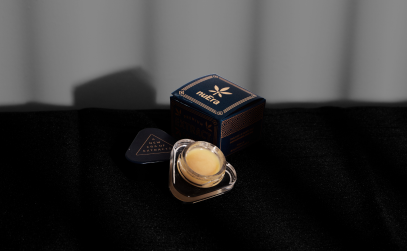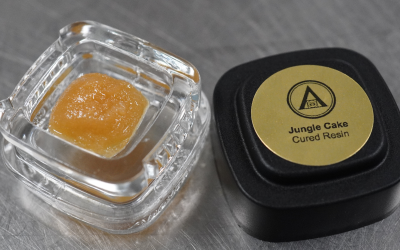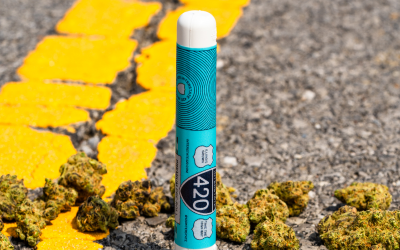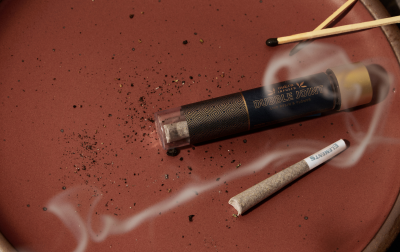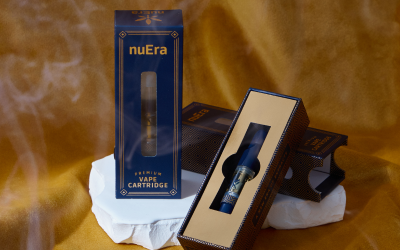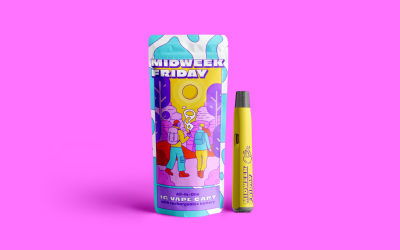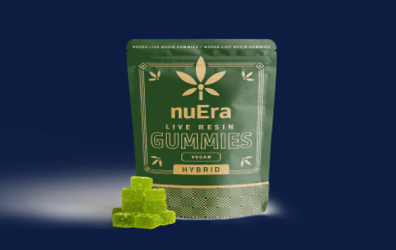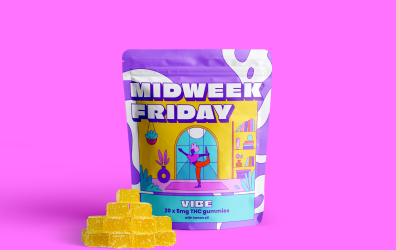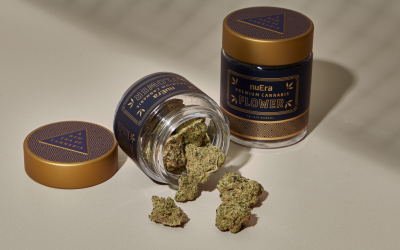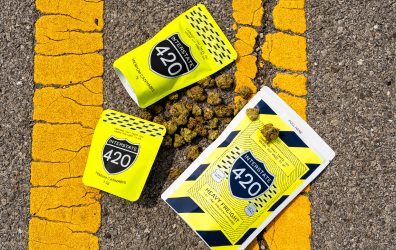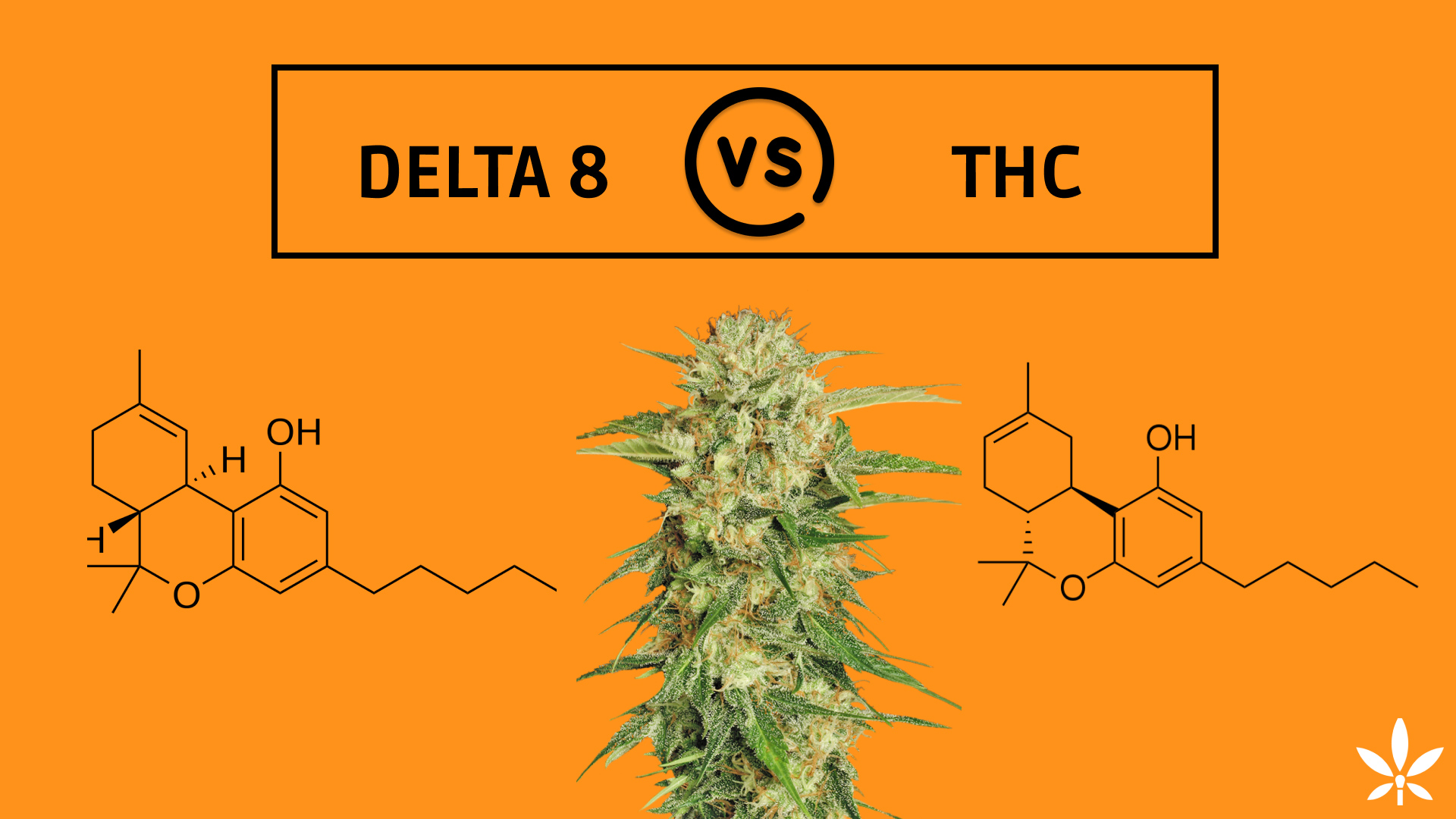
As the cannabis market evolves, a new player has emerged on the block, Delta-8 tetrahydrocannabinol, less formerly known as Delta-8. These days, Delta-8 is popping up everywhere, from online stores to your local smoke shop, creating quite the buzz.
But what’s the real deal with this cannabis compound, and how does it differ from tried and true, Delta-9 THC?
While both compounds originate from the beloved Cannabis sativa plant, there are some crucial differences between the two.
In this post, we’ll dive into the world of Delta-8 and THC, unraveling their mysteries and shedding light on why Delta-8 is making headlines – and not always for the right reasons.
What is Delta-8 THC?
Delta-8 THC is a psychoactive substance found in the Cannabis sativa plant. It’s one of the over 100 cannabinoids produced by the plant, but unlike Delta-9 THC (commonly known just as THC), it is not found in significant amounts in cannabis.
As a result, concentrated forms of Delta-8 THC are typically synthesized from hemp-derived cannabidiol (CBD).
Similarities Between Delta-8 and Delta-9 THC
Both Delta-8 and Delta-9 THC interact with the body’s endocannabinoid system, particularly affecting the CB1 and CB2 receptors. This interaction can lead to psychoactive effects, including pain relief, relaxation, and euphoria.
Both compounds are used recreationally and, in some instances, for their potential therapeutic benefits.
Key Differences:
- Potency: Delta-8 is generally less potent than Delta-9 THC. This lower potency is often reported to result in a milder high, with fewer anxiety and paranoia symptoms.
- Production: While Delta-9 THC is a major constituent of the cannabis plant, Delta-8 is present only in trace amounts. Most Delta-8 products are synthetically made from CBD.
- Regulation: Delta-9 THC products, particularly in states where cannabis is legal like Illinois, are subject to strict regulations including testing and labeling. In contrast, Delta-8 operates in a more unregulated space, raising concerns about product safety and consistency.
The Risks of Delta-8
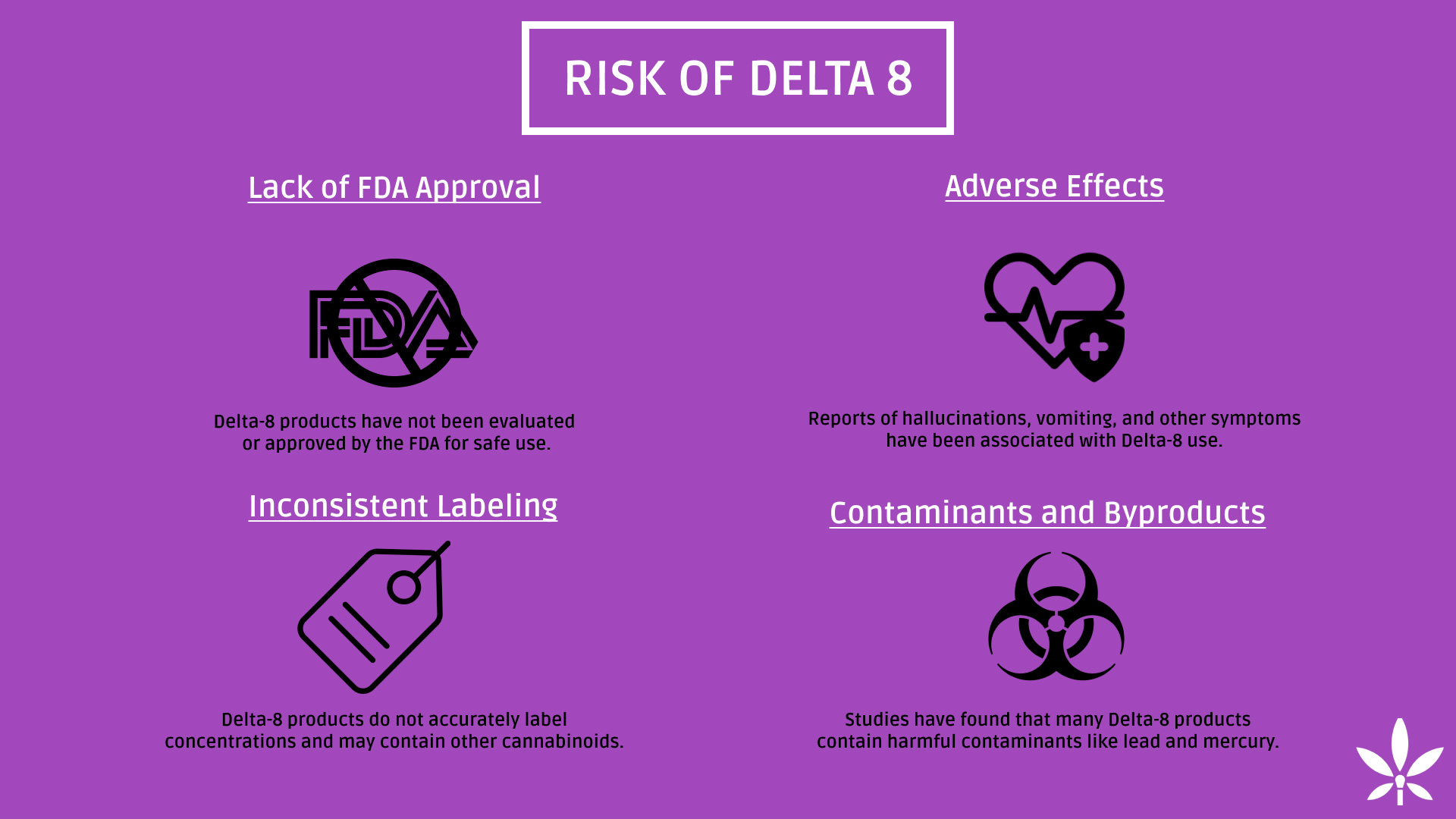
The unregulated nature of Delta-8 poses significant risks.
These include:
- Lack of FDA Approval: Delta-8 products have not been evaluated or approved by the FDA for safe use. This lack of oversight means consumers have no guarantee of what they’re getting in terms of potency or purity.
- Adverse Effects: Reports of adverse effects, including hallucinations, vomiting, and loss of consciousness, have been associated with Delta-8 use.
- Contaminants and Byproducts: Studies have found that many Delta-8 products contain harmful byproducts or contaminants, including heavy metals like lead and mercury.
- Inconsistent Labeling: Many Delta-8 products do not accurately label the concentration of Delta-8 and may contain other cannabinoids, including Delta-9 THC.
The rise of Delta-8 THC in the cannabis market can be traced back to the 2018 Farm Bill, which, while legalizing hemp, inadvertently left a gray area around Delta-8. This oversight has allowed Delta-8 to proliferate, even in states where traditional cannabis is not legal.
Unlike Delta-9 THC products, which are subject to stringent regulations in states where cannabis is legal, Delta-8 exists in a regulatory limbo. This lack of oversight means there are no standardized testing protocols for Delta-8, leaving a significant gap in verifying product safety and consistency.
In states like Illinois with legal cannabis, products containing THC are rigorously tested for potency, purity, and contaminants such as pesticides, heavy metals, and residual solvents. At nuEra we believe these safety checks are crucial in ensuring consumer protection and take great care to adhere to the strict guidelines in our newly acquired cultivation center.
The unregulated nature of Delta-8 production means that these products might not undergo the same level of quality control as legal THC products. This raises serious concerns about the presence of unknown or harmful additives, inaccurate labeling of THC content, and potential contamination.
With no standardized testing, Delta-8 products can vary widely in potency and dosage, making it challenging for consumers to predict the effects. This inconsistency can lead to overconsumption or adverse reactions, particularly for inexperienced users.
Several reports have emerged of Delta-8 products being contaminated with synthetic cannabinoids, heavy metals, or excessive levels of Delta-9 THC, leading to unpredicted and potentially harmful effects.
Regulation is Key
While Delta-8 and THC share some similarities, the significant differences, particularly regarding the safety and regulation of Delta-8, are cause for concern.
Consumers should exercise caution, particularly with the unregulated nature of Delta-8 products. As the cannabis industry continues to evolve, it’s crucial for regulations and consumer education to keep pace, ensuring safety and informed choices for all cannabis users.
If you’re looking for more information on regulated THC products, please visit our many nuEra dispensaries across the state of Illinois and speak to one of our knowledgeable budtenders that are trained to expertly guide customers through all their cannabis related needs!
FAQ
What is Delta-8 THC?
Delta-8 THC, short for Delta-8 tetrahydrocannabinol, is a psychoactive compound found in the Cannabis sativa plant. It’s one of the many cannabinoids produced by the plant and shares some similarities with Delta-9 THC, commonly known as THC.
How are Delta-8 and Delta-9 THC Similar?
Both Delta-8 and Delta-9 THC interact with the body’s endocannabinoid system, affecting CB1 and CB2 receptors. This interaction can lead to psychoactive effects, including pain relief, relaxation, and euphoria. Both compounds are used recreationally and, in some cases, for potential therapeutic benefits.
What Are the Key Differences Between Delta-8 and Delta-9 THC?
The main differences include potency, production, and regulation. Delta-8 is generally less potent than Delta-9 THC, resulting in a milder high with fewer anxiety and paranoia symptoms. Unlike Delta-9 THC, which is a major constituent of the cannabis plant, Delta-8 is usually synthesized from hemp-derived CBD. Additionally, Delta-9 THC products are subject to strict regulations in states where cannabis is legal, whereas Delta-8 operates in a more unregulated space, raising concerns about product safety and consistency.
What Are the Risks Associated with Delta-8?
Delta-8 poses several risks due to its unregulated nature, including:
- Lack of FDA Approval: Delta-8 products have not been evaluated or approved by the FDA, leading to uncertainties about potency and purity.
- Adverse Effects: Reports of adverse effects, including hallucinations, vomiting, and loss of consciousness, have been associated with Delta-8 use.
- Contaminants and Byproducts: Many Delta-8 products contain harmful byproducts or contaminants like heavy metals.
- Inconsistent Labeling: Delta-8 products may not accurately label the concentration of Delta-8 and may contain other cannabinoids, including Delta-9 THC.
Why Has Delta-8 Gained Popularity?
The rise of Delta-8 in the cannabis market can be attributed to the 2018 Farm Bill, which legalized hemp but created a regulatory gap around Delta-8. This oversight allowed Delta-8 to proliferate, even in states where traditional cannabis is not legal.
How Does Regulation Affect Delta-8 and Delta-9 THC?
In states like Illinois where cannabis is legal, THC products undergo rigorous testing for potency, purity, and contaminants. This ensures consumer protection. However, Delta-8 exists in a regulatory gray area and lacks standardized testing, leading to concerns about product safety and consistency.
What Should Consumers Keep in Mind when Considering Delta-8 Products?
Consumers should exercise caution, especially with the unregulated nature of Delta-8 products. Be aware of potential risks, variations in potency and dosage, and the absence of standardized testing. It’s important to make informed choices when considering Delta-8 products.
Where Can I Find Regulated Delta-9 THC Products?
If you’re looking for regulated Delta-9 THC products and want expert guidance, visit one of our many nuEra dispensaries across the state of Illinois. Our knowledgeable budtenders are trained to assist customers with their cannabis-related needs and ensure a safe and informed experience.
Disclaimer: The information provided in this blog post regarding cannabis products including similarities and differences between Delta-8 and Delta-9 THC, is intended for educational and informational purposes only. It should not be considered as medical advice. The effects of cannabis can vary greatly between individuals, and the information shared here may not be applicable or suitable for everyone. Always consult with a qualified healthcare professional or a licensed medical cannabis practitioner before making any changes to your cannabis consumption habits, especially if you have health concerns or are using cannabis for medicinal purposes. The legal status and regulations around cannabis consumption vary by region; please ensure you are compliant with local laws regarding cannabis use. This blog does not endorse or encourage the use or misuse of cannabis.


